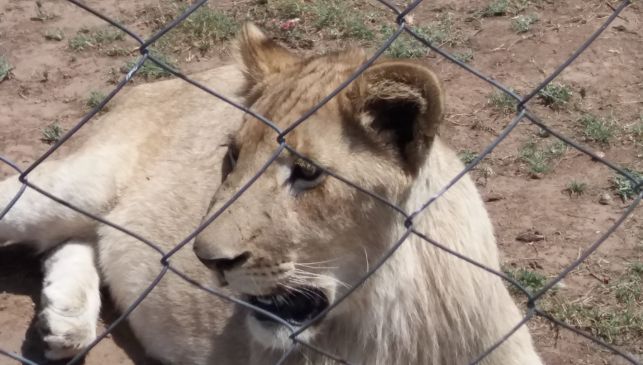CACH threatened to sue for defamation in response to a particularly nasty piece of hunting propaganda by SAPA (S.A. Predators Association). Their reply was defiant:
“You have made it your life’s work to devastate the life’s work of our members and with it the livelihood of thousands of workers and their dependents. Just like you, Mr Mercer, our Association and its members love the African lion.”
Now this is a strange kind of love, when the farmer breeds lions for commercial gain, to be used as living targets by gun-toting or bow-wielding thugs who enjoy inflicting suffering and death on helpless animals for fun. I would say that their lion farming is an industry based not on love for animals, but rather upon routine cruelty to animals.
If there is any love, I see only a love of money.
The original article by SAPA’s Chairman, Prof. Potgieter, was entitled ‘9 Myths about captive bred lions’ and was published here:
http://wildboere.com/9-myths-about-captive-bred-lions/
A number of fatuous claims were made in this bit of gutter journalism, which attempts to portray lion farmers in S.A. as wonderful conservationists, having only the interests of lions at heart.
Bear in mind that this same organisation, SAPA, won their court case against the Minister responsible for Conservation (when he tried to impose a 24-month wilding rule upon the industry) on the legal basis that they were not conservationists, that what they were doing had nothing to do with conservation, and that therefore the Minister of Conservation had no authority over their agricultural enterprise.
So while they are trying to escape regulation, the lion farmers deny vigorously that they are conservationists, but when they are trying to paint lipstick on a pig in the media then they pose as the most wonderful conservationists – and animal lovers.
SAPA complains that CACH is committed to “devastating the livelihood of thousands of workers on lion farms”.
Hmnn..imagine if we were campaigning against drug dealers, rather than animal abusers. Would we then be accused of ‘devastating the livelihoods’ of all those heroin and crack dealers and their dependants?
Surely the real question is whether the industry is harmful or not. And if it is, then the workers must join the rest of society and look for honest employment.
In the case of lion farming, “thousands of workers” could be better employed growing food for the nation, rather than helping to abuse animals for sick entertainment.
CACH’s main issue with the article related to the defamatory allegations. The whole theme of the article is that the people speaking out against the cruelty of lion farming and canned lion hunting are not motivated by genuine animal welfare concerns, but rather by sordid commercial ones. The tedious repetition about Donate buttons on websites is used to drive that message home.
We – Bev and I - have been campaigning against canned hunting for sixteen years and it has cost us much of our life savings. Only recently, since the Global March for Lions in 2014, have any meaningful contributions come in from the public. We are all volunteers; none of us draws a salary, and activists who are invited to join our group are specifically told – in writing – that they are only expected to raise awareness, not funds. Recently, we sold our house in order to start a CACH project, namely a wildlife sanctuary in the Klein Karoo.
https://www.facebook.com/karoowildlife/
To publish an article saying that the real motivation for our work is cynical fundraising is false, and demeaning.
We asked for a retraction and an apology. The blunt answer was that none would be forthcoming.
Chris Mercer.

